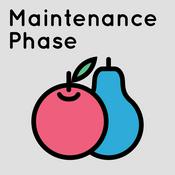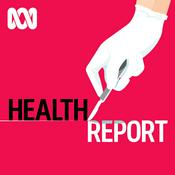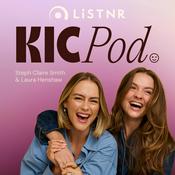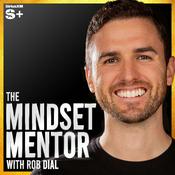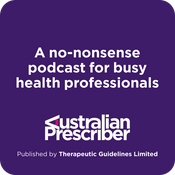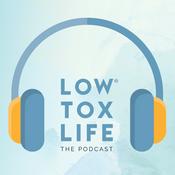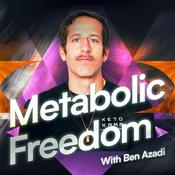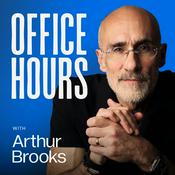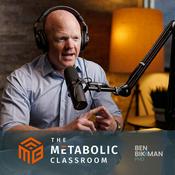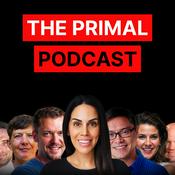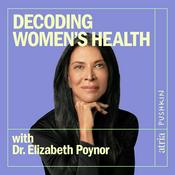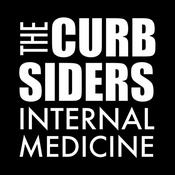287 episodes
- With endless entertainment at your fingertips on your phone, how often do you really sit and do absolutely nothing?
It turns out that even when you’re staring into the middle distance, your brain is firing away with activity.
Norman and Tegan explore why giving your brain a break might be important for learning and creativity.
References:
The Journey of the Default Mode Network: Development, Function, and Impact on Mental Health
Default-mode brain dysfunction in mental disorders: A systematic review
Just think: The challenges of the disengaged mind - Science
The Importance of the Default Mode Network in Creativity—A Structural MRI Study
The Importance of the Default Mode Network in Creativity—A Structural MRI Study
People are increasingly bored in our digital age
If you enjoyed this episode, check these out!
What is the perfect nap duration?
Can tattoos increase your risk of cancer?
Why are people taping their mouths? - How many times a week are you eating fish? What about oily fish, like salmon and tuna?
Our dietary guidelines recommend the regular consumption of fish to potentially reduce the risk of cardiovascular disease, dementia and even macular degeneration.
Norman and Tegan dig into the oily history of fish, and whether supplements can have the same effect.
References:
The Man with a Fish on His Back: In the late 19th century cod-liver oil was proclaimed the cure for many ailments
"Fishing" for the origins of the "Eskimos and heart disease" story: facts or wishful thinking?
Omega-3 Fatty Acids - National Institutes of Health
The relationship between polyunsaturated fatty acids and inflammation: evidence from cohort and Mendelian randomization analyses
Omega‐3 fatty acids for the primary and secondary prevention of cardiovascular disease
Regular use of fish oil supplements and course of cardiovascular diseases: prospective cohort study
Associations Between Plasma Omega-3 and Fish Oil Use With Risk of Atrial Fibrillation in the UK Biobank
Associations of fish oil supplementation with incident dementia: Evidence from the UK Biobank cohort study
Omega-3 Fatty Acids for the Management of Osteoarthritis: A Narrative Review
Omega 3 fatty acids for preventing or slowing the progression of age‐related macular degeneration
Omega-3 fatty acids for depression in adults
Fish-Oil Supplementation and Cardiovascular Events in Patients Receiving Hemodialysis
If you enjoyed this episode, check these out!
Why is everyone suddenly talking about seed oils?
Does magnesium work against muscle cramps?
Why is the internet telling me to lower my cortisol? - It’s so common to tell kids to wait an hour after eating to swim that many of us never question it.
But what are the actual consequences of jumping straight back in the pool after you’ve had your lunch?
Norman and Tegan tackle whether this advice is grounded in evidence, and discuss what you should actually avoid.
References:
Scouting for boys - 1908
The International Lifesaving Federation medical position statement 2014
Effect of food consumption on 200-yard freestyle swim performance
The National Drowning Report 2025
Monday’s medical myth: wait 30 minutes after eating before you swim – the Conversation
If you enjoyed this episode, check these out!
Does magnesium work against muscle cramps?
Why do you feel so tired after a big meal?
Is being an Olympian bad for your health? - Last year Norman made the shocking statement that people shouldn’t retire because it’ll be bad for their brains.
After an influx of requests, we’ve looked at the evidence not only when it comes to brain health, but heart health, metabolic health and mental wellbeing.
Norman and Tegan unpack the complex story of what happens to your brain and body when you retire – depending on the job you had.
References:
How Retirement Was Invented: The earliest schemes for financial support in old age were pegged to life expectancy
Towards higher retirement incomes for Australians: a history of the Australian retirement income system since Federation
Impact of retirement transition on health, well-being and health behaviours: critical insights from an overview of reviews
Effect of retirement on cognitive function: the Whitehall II cohort study
Retirement or no Retirement? The Decision’s Effects on Cognitive Functioning, Well-Being, and Quality of Life
Risk of Cognitive Declines With Retirement: Who Declines and Why?
The Impact of Retirement on Cardiovascular Disease and Its Risk Factors: A Systematic Review of Longitudinal Studies
Retirement and mental health: Analysis of the Australian national survey of mental health and well-being
The Effects of Retirement on Sense of Purpose in Life: Crisis or Opportunity?
The Role of Meaning in the Retirement Transition: Scoping Review
Life after work: how we can support retirees – R U OK?
If you enjoyed this episode, check these out!
Is NAD+ a miracle anti-ageing supplement?
At-home DNA tests — what can they tell you?
How much protein do you REALLY need? - A few weeks into the new year you might be reassessing your resolutions and wondering where to put your energy.
Is it possible to choose between diet or exercise? Or are the two inherently intertwined?
Norman and Tegan try to untangle the untangleable, pitting diet and exercise against one another in different arenas.
References:
The history of nutritional sciences
Casimir Funk: The scientist who gave us the word 'vitamin'
How the Seven Countries Study contributed to the definition and development of the Mediterranean diet concept: A 50-year journey
Coronary Heart Disease and Physical Activity of Work
Long-term effectiveness of diet-plus-exercise interventions vs. diet-only interventions for weight loss: a meta-analysis
Efficacy of dietary intervention or in combination with exercise on primary prevention of cardiovascular disease: A systematic review
Diet or diet plus physical activity versus usual care in patients with newly diagnosed type 2 diabetes: the Early ACTID randomised controlled trial
Trading off dietary choices, physical exercise and cardiovascular disease risks
If you enjoyed this episode, check these out!
Why Norman won't shut up about the Mediterranean diet
Why the carnivore diet is so risky
Is botox worth a shot?
More Health & Wellness podcasts
Trending Health & Wellness podcasts
About What's That Rash?
Get answers to the health questions everyone's asking. Our experts give you the information you need to feel good and make the best decisions for your brain and body.
Podcast websiteListen to What's That Rash?, Get Sleepy: Sleep meditation and stories and many other podcasts from around the world with the radio.net app

Get the free radio.net app
- Stations and podcasts to bookmark
- Stream via Wi-Fi or Bluetooth
- Supports Carplay & Android Auto
- Many other app features
Get the free radio.net app
- Stations and podcasts to bookmark
- Stream via Wi-Fi or Bluetooth
- Supports Carplay & Android Auto
- Many other app features


What's That Rash?
Scan code,
download the app,
start listening.
download the app,
start listening.


